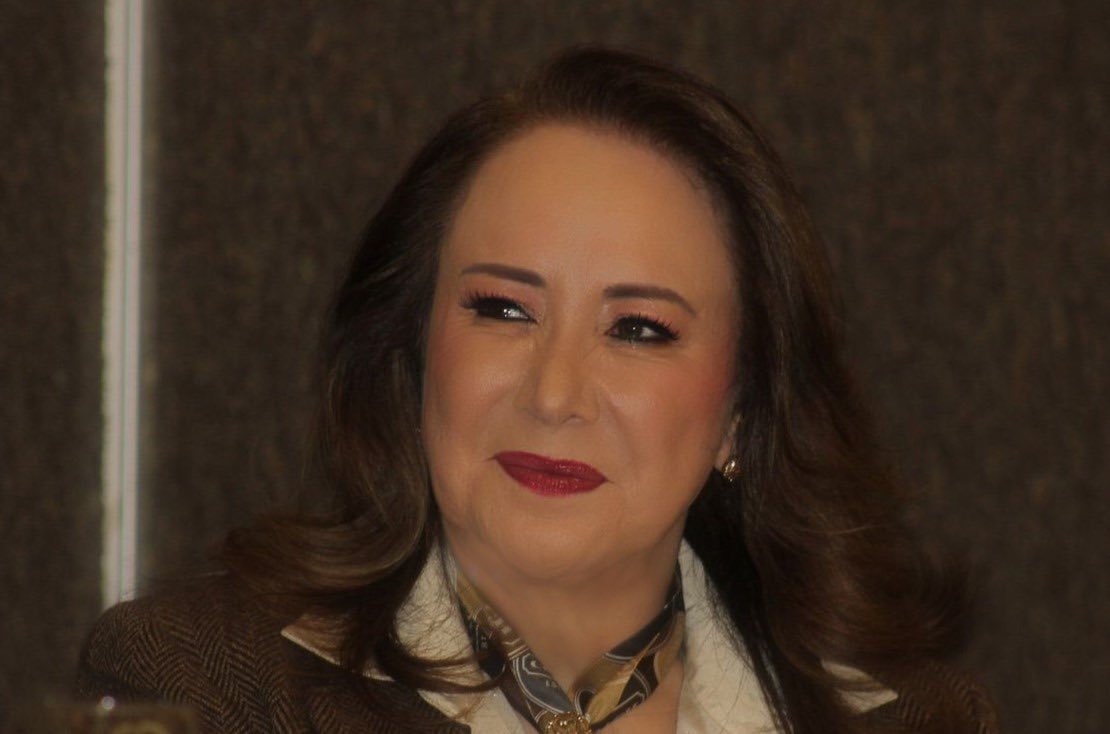MEXICO CITY (CN) — A plagiarism scandal involving the undergraduate thesis of a justice on Mexico’s Supreme Court has taken a surprising turn.
Attorney Edgar Ulises Báez had previously defended the originality of the thesis he presented at the National Autonomous University of Mexico (UNAM) in 1986, the year before Supreme Court Justice Yasmín Esquivel Mossa's thesis was accepted by the university's law school. An UNAM ethics committee announced on Jan. 11 that the justice's work was a “substantial copy” of Báez's.
In a voice recording published by the newspaper El Universal Monday, however, Báez can clearly be heard saying he lied to the panel.
“Members of the UNAM committee came and asked me in front of a notary if any other notary had come to see me, and they showed me the photo of the notary who came, and I told them no, even though it had happened like that,” said Báez in the recording.
Báez referred to his alleged signing of a document acknowledging the plagiarism. He told the Mexican news outlet LatinUS in early January that it was “illogical and incoherent” to think that he had signed any document, as he is in the process of going blind. He also said he planned to sue Esquivel for “giving false reports to authorities.”
However, in the audio he can clearly be heard saying, “I only took some references, I did not copy the thesis in its entirety.”
As for how Báez could have presented a thesis plagiarized from one accepted the following year, some have floated the theory that Esquivel's academic adviser, Martha Rodríguez Ortiz, could have been selling copies of prewritten essays to her students. The ethics panel found three other nearly identical theses from the same time as Esquivel's.
The procedures of degree granting at UNAM allow for students to present a thesis even several years after completing the required coursework, which could also account for the time discrepancy, were Báez's recorded statement found to be true.
The recording corroborates a video included in the case file of an investigation into the matter by the Mexico City district attorney’s office, and published by El Universal on Jan. 19, of Báez allegedly signing said document in front of public notary Amando Mastachi Aguario on Dec. 29.
Mastachi denied a request for comment, but said in a statement published Jan. 12 that he did go to Báez’s residence and witness him sign a document. Mastachi did not, however, confirm the content of the document Báez signed, claiming his participation “was limited only and exclusively to attesting to [Báez’s] signature and recognition of the content of a document that he showed to me in that moment, therefore, I as notary do not endorse the content of said document.”
Esquivel has maintained her innocence ever since news of the possible plagiarism broke in December and even after the ethics panel's announcement. The justice did not immediately respond to a request for comment.
Monday’s revelation came as a surprise to many in the legal community in Mexico, most of whom had accepted the idea that Esquivel had plagiarized the work after the committee made its findings public.
“New versions of the case of Justice Esquivel are popping up every day,” said UNAM law professor Ricardo Brito Melgarejo. “I think these statements are the result of an issue that is getting more and more politicized.”
But rather than getting the public closer to the truth, this latest volley in what has turned into a high-stakes game of he said, she said appears to have only mired the situation further in the increasingly polarized political landscape in Mexico.
“I think it will be very difficult to find the truth … as the debate has moved over to another arena in which the accusations have more repercussions than the content,” said Brito, who added that the court’s prestige, and thus the force of its decisions, lie in the honorableness of its members.
“That’s why I think it’s essential that the citizenry know what really happened in this case,” he said. “Otherwise, the votes, projects and opinions of Justice Esquivel will be repeatedly questioned, and this will diminish the reputation of an institution that, by nature, is sustained in good measure by its credibility.”
Despite the recording's semblance of being a smoking gun, it did not exonerate Esquivel, according to Javier Martín Reyes, who also teaches law at UNAM and is a lecturer in the legal division at the Mexico City-based government think tank CIDE.
“Ultimately, the important thing is that Esquivel’s story doesn’t make sense,” he said. “Báez may not be very credible, but the hard evidence — the theses, the times, the UNAM records — they’re all still there,” he said.
A different ethics committee at UNAM last week summoned Esquivel to defend her thesis, saying it would give her the opportunity to provide “the arguments and evidence that she deems pertinent, guaranteeing her the right to a hearing and defense.”
The committee did not give a deadline for her to appear, and said that she could send a representative in her place. Still, there is not much the university can do in the way of discipline.
UNAM rector Enrique Graue Wiechers has said publicly that the university lacks the mechanisms to invalidate an alumnus’ degree, even when a body within the university has confirmed an offense as serious as plagiarism.
Subscribe to Closing Arguments
Sign up for new weekly newsletter Closing Arguments to get the latest about ongoing trials, major litigation and hot cases and rulings in courthouses around the U.S. and the world.









